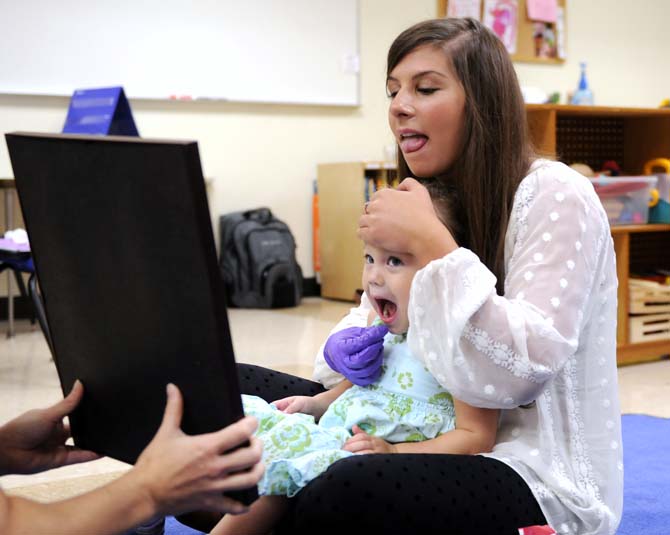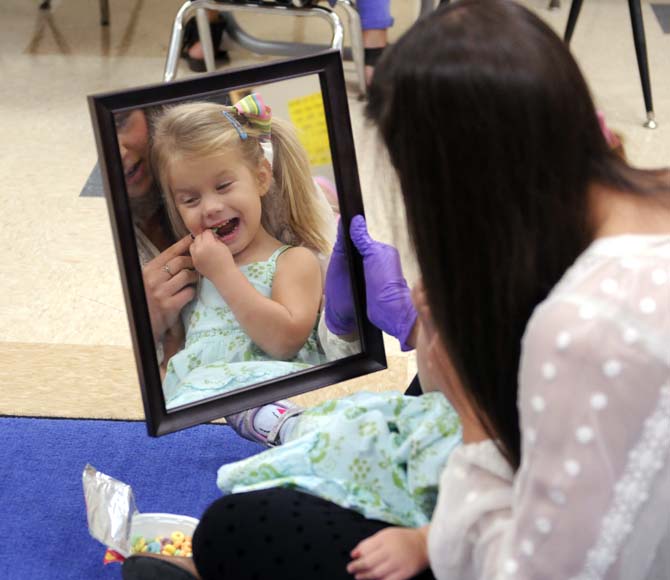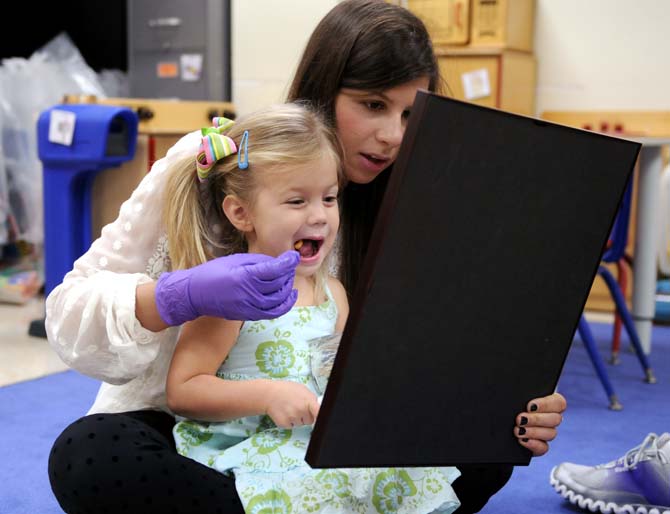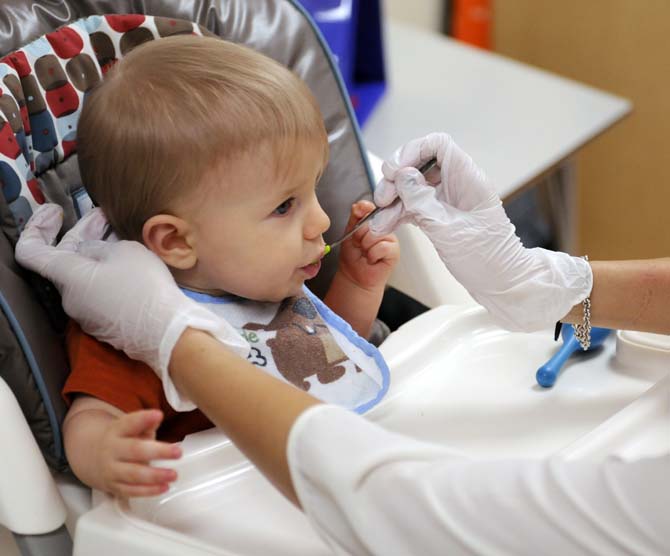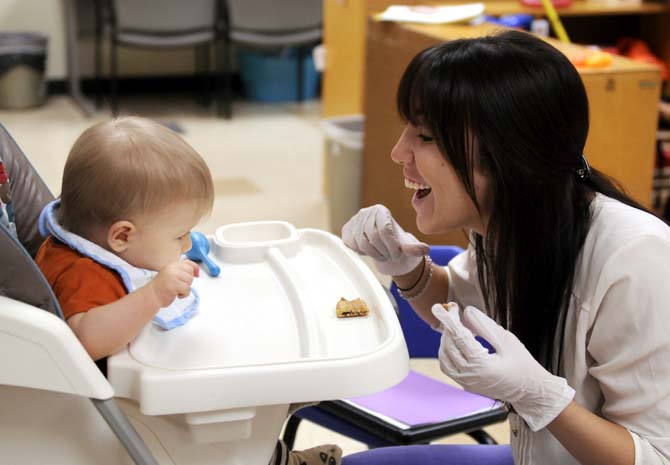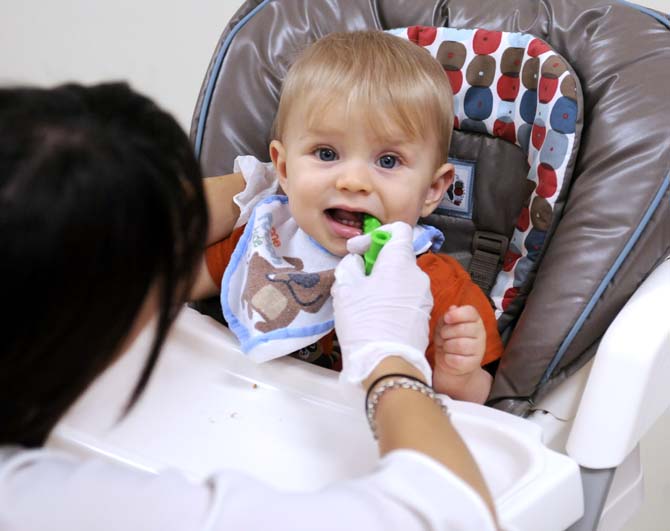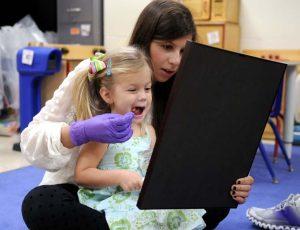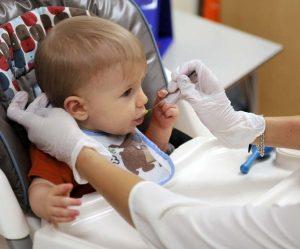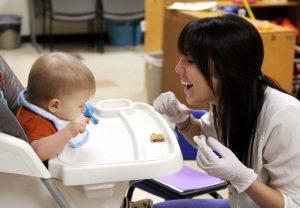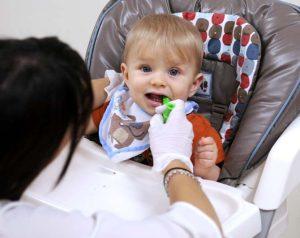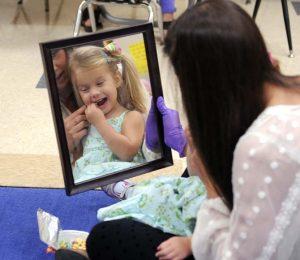University graduate students are helping young children enjoy one of the most basic necessities of life: eating.
The University’s Department of Communication Sciences and Disorders has opened the LSU Pediatric Feeding Clinic this semester, which helps children and their parents develop a healthy family eating plan. Speech-Language Pathologist Courtney Gonsoulin is the instructor who oversees the work the graduate students do with the children.
Because the clinic is so new, only three children are currently being cared for, Gonsoulin said. The children are usually referred by a doctor or pediatrician for more intensive service, she said.
Two of the children currently at the clinic are Kate and Grant Worthington. Grant, 8 months old, and his 3-year-old sister Kate were both tongue-tied at birth — meaning the tissue under their tongues was very short and tight.
This prevents them from moving their tongue and makes it difficult for them to eat, Gonsoulin said. The condition can also affect speech.
The tongue-tie had to be cut using laser surgery, and afterward, the children are not used to moving their tongue, so the graduate students must teach the children how to use it while eating, Gonsoulin said.
Speech-pathology graduate student Brenna Gonzales is working with Grant this semester to develop lateral and forward tongue movement so he can have a healthy and pleasurable eating experience. Gonzales introduces new flavors to Grant, such as pickle juice, to encourage forward tongue movement, she said.
Kate works with graduate student Morgan Soike to develop tongue movement and promote eating more solid foods with protein, Gonsoulin said.
One of the exercises Soike uses involves placing a mirror in front of Kate and letting her watch herself move a Froot Loop from side to side in her mouth, Gonsoulin said.
Grant and Kate’s mother, Shelly Worthington, uses the tips from the clinic to help her children at dinner time, she said. In the few months her children have been going to the clinic, there has been significant improvement, she said.
The care provided in the feeding clinic is individualized based on the specific child’s case, Gonsoulin said. Sometimes children are born with sensory issues that keep them from enjoying certain foods or even eating solid food at all, she said. Gonsoulin said what should be a fun family experience becomes a struggle at home.
“Eating is an event. It’s part of our lives. It should be pleasurable,” she said.
The issue is diagnosed in the clinic, and from there, a plan is developed by Gonsoulin and the graduate students so the children and their parents can work toward a common goal. This goal may simply be to eat a hamburger at the end of the semester, Gonsoulin said.
The cost of the service is, on average, only $240 per semester, Gonsoulin said. This price is dependent on the case and how often a child is in the clinic, so the price may even be less, she said. The consultations could be only once a week or multiple times depending on the issue.
The clinic has a high success rate when it comes to preparing University students for finding jobs after graduation, Jumonville said.
Students who have gone through the two year program, working in various fields of communication sciences and disorders, have found careers around the country, including New York and parts of California, said Jumonville.
Baby Food: Pediatric Feeding Clinic aims to help children eat
October 7, 2013
Speech Pathology graduate student Morgan Soike encourages Kate Worthington to move her tongue Monday, October 7, 2013 in Hatcher Hall.


